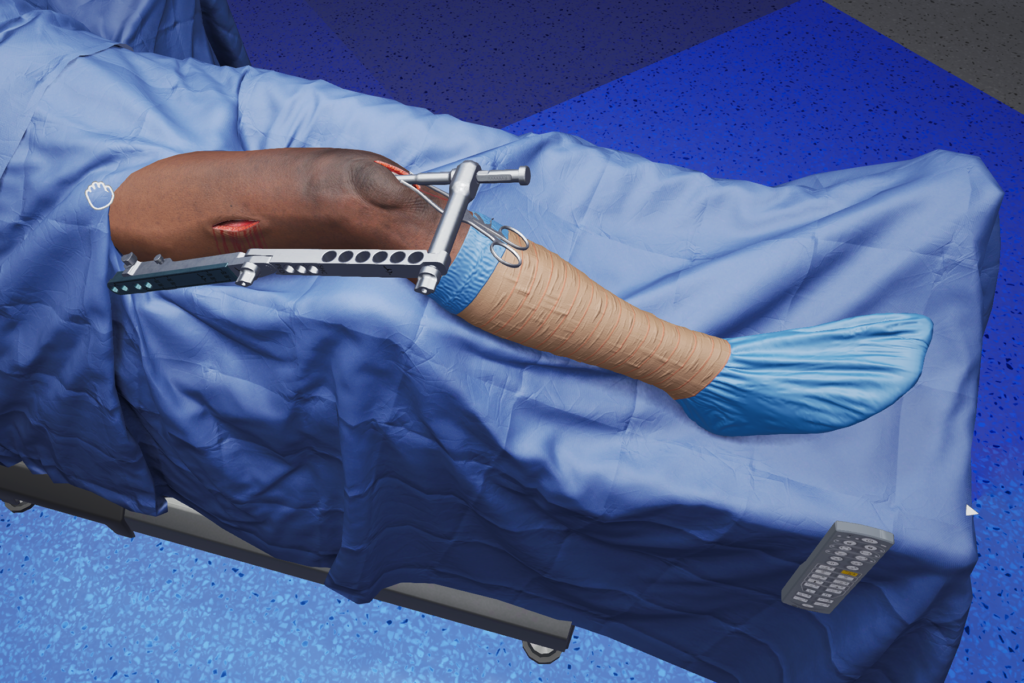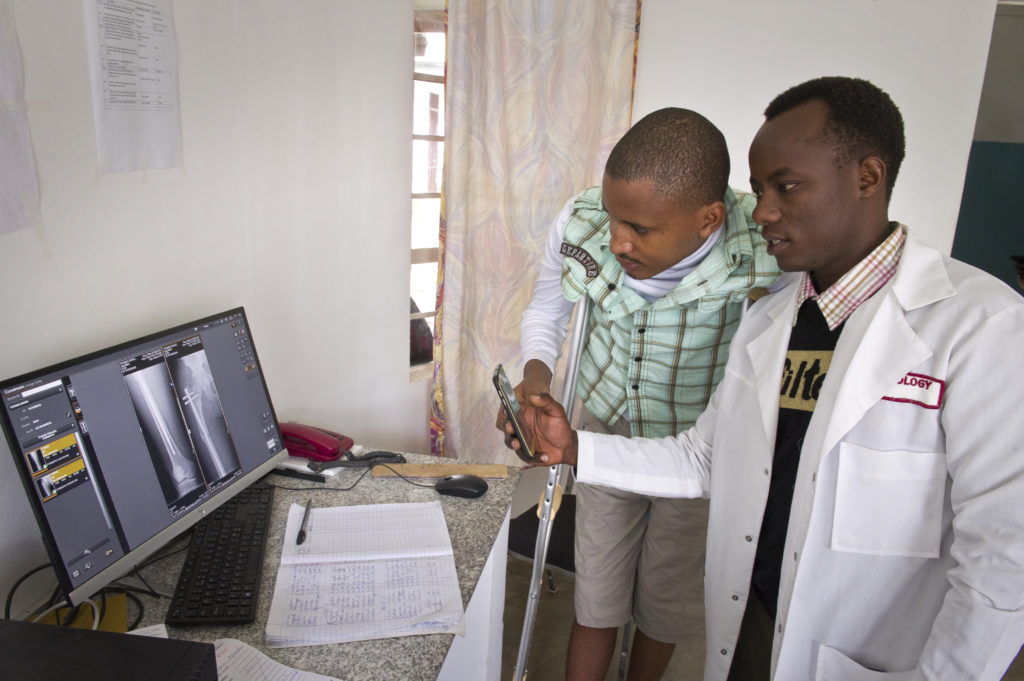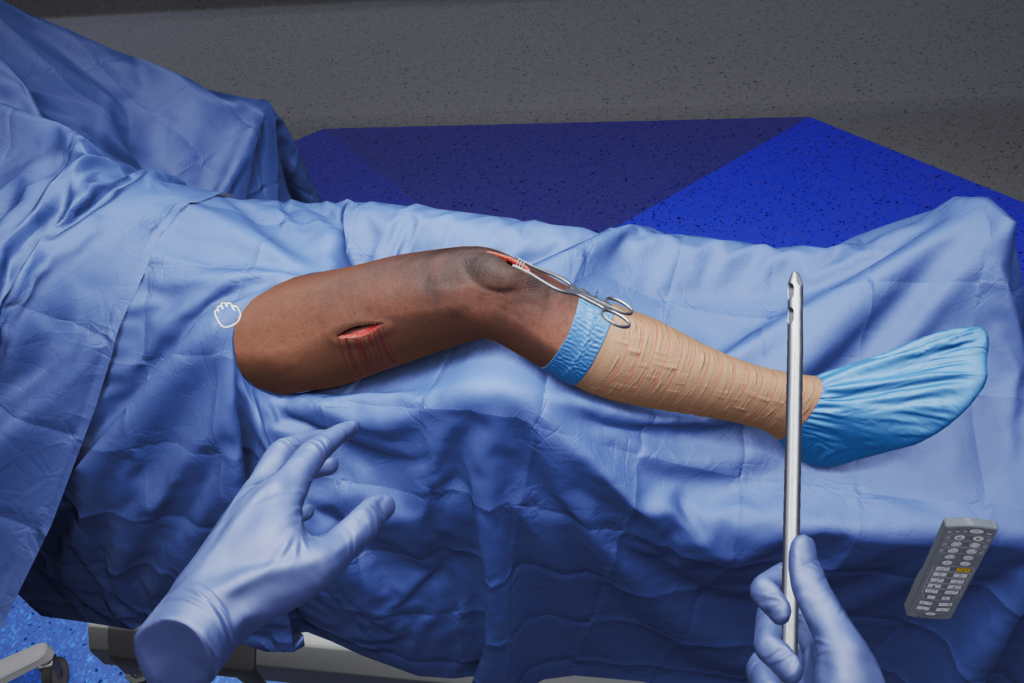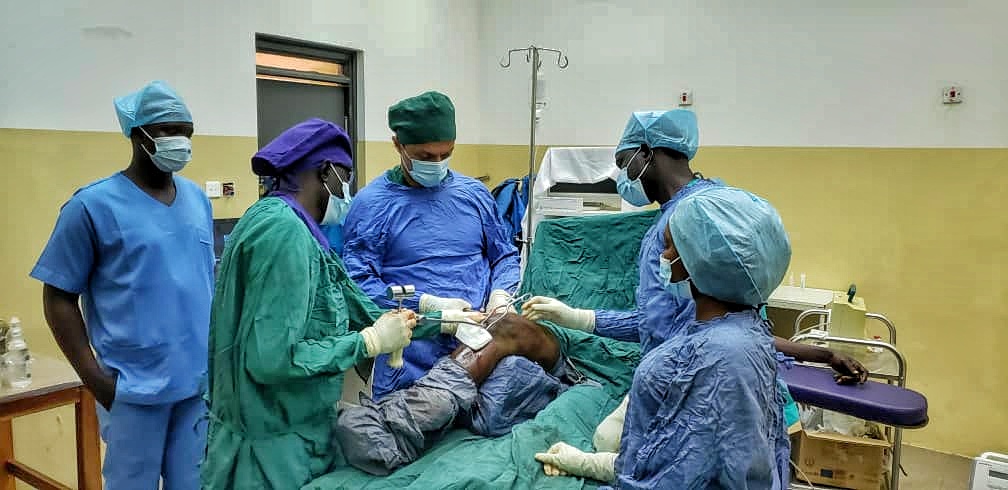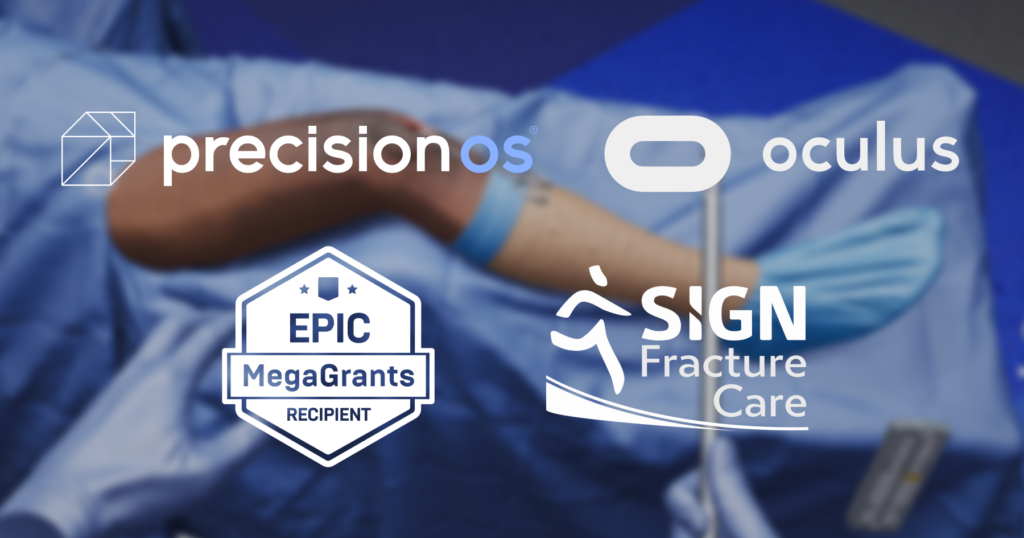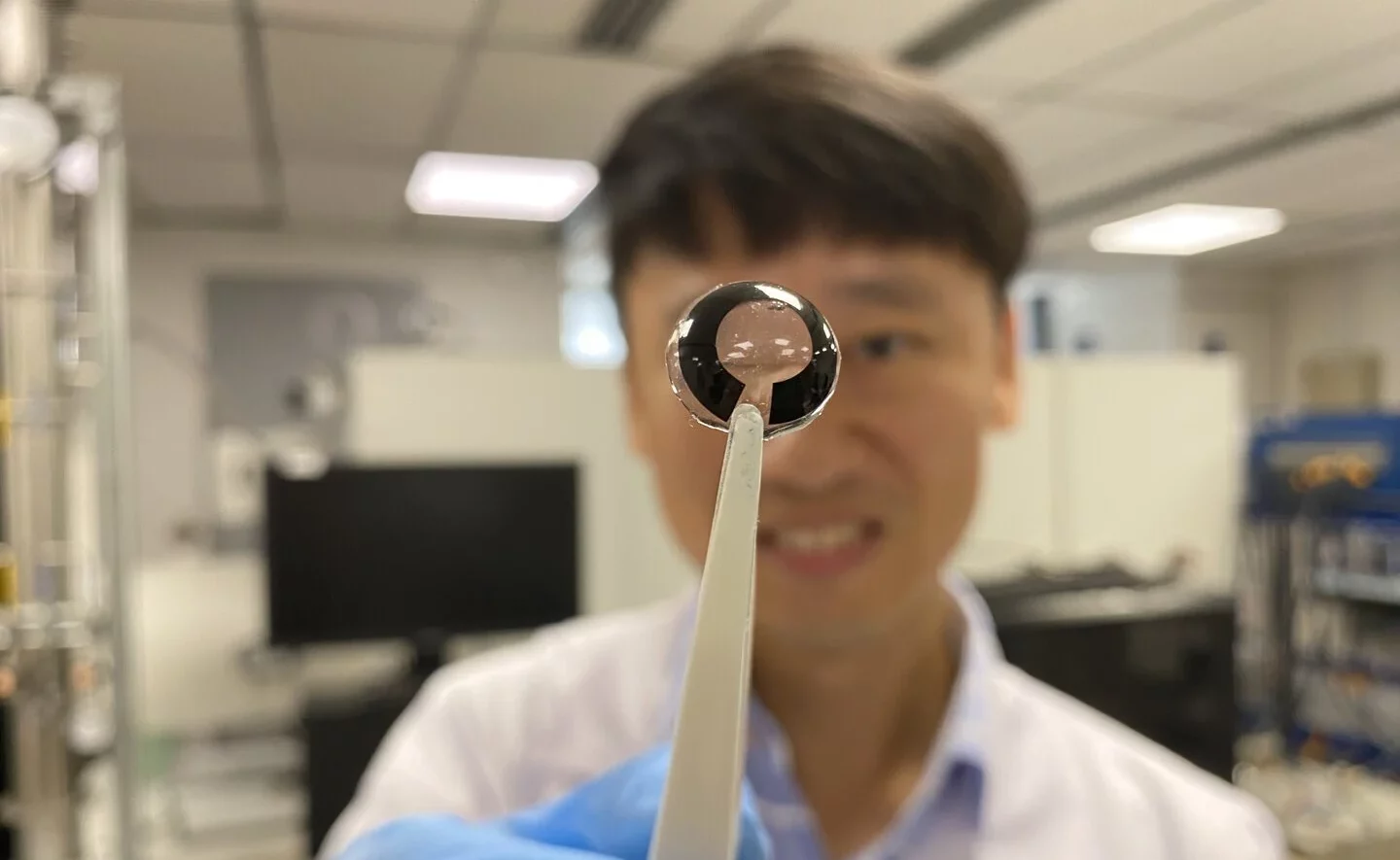VR training lets surgeons in low-resource countries go through the motions before performing on patients.
The VR medical company PrecisionOS along with support from Epic Games MegaGrant and Oculus, have launched a VR training module designed specifically for the global nonprofit humanitarian organization SIGN Fracture Care. Doctors in the organization who specialize in orthopedic surgery in low-resource countries will have access to critical training that will vastly improve outcomes for patients with severe bone fractures and bone injuries.
Using a combination of innovative VR training blended with SIGN Fracture Care’s analog approach to surgery, surgeons are able to experience training that is both efficient and effective, giving them the necessary knowledge to help patients with broken arms and legs in the world’s poorest places.
PrecisionOS provides immersive VR training for a number of medical device companies, professional societies, and major medical institutions from around the world. SIGN Fracture Care works with doctors in low-resource medical facilities and hospitals to improve their cognitive understanding of joints and bone structures. VR technology allows orthopedic surgeons to go through the motions of the surgery before actually performing treatments on patients.
This technique delivers far more training skills to individuals than presently available in the 55 developing countries served by SIGN Fracture Care, which has helped more than 350,000 patients globally. Previously, SIGN Fracture Care needed to fly surgeons to their headquarters or to a hospital in another country for training, costing considerable time and money in the process. This program eliminates the financial (and sustainability) burden by removing the need for any physical travel.
“Educating local surgeons to render care for patients in their home communities builds much-needed sustainable orthopedic capacity and improves the quality of life and longevity for people in low- and middle-income countries,” explained Lewis Zirkle, M.D., SIGN President and Founder in an official press release. “With PrecisionOS freeing resources up, we can move more rapidly towards our goal of creating equality of fracture care around the globe.”
In a paper titled ‘mLearning in the organizational innovation process’ written by Dr. Micah Shippee and published by Syracuse University in 2016, Dr. Shippee outlines his FUSION model.
During an interview with VRScout, Dr. Shippee said, “The Fusion Model articulates a strategy for organizational adoption of innovative solutions. As an end-to-end road map for success, the Fusion Model can inform change from initial conversations about adoption through to establishing a new norm within organizational culture.”
“It is exciting to see how emerging technologies are being used to increase access to high-quality training at a global level,” said Shippee about PrecisionOS, adding, “The ability to consistently deliver an experiential-scenario, designed by top experts in the field with knowledge of best-practices methods, is clearly meaningful training and learning.”
The PrecisionOS training modules are designed for surgeons using a learning theory called Deliberate Practice and is the only VR training program that promotes individual decision making. The platform gives medical professionals the ability to explore different pathways to a certain procedure and delivers critical performance and technical feedback.
“We developed a training module for SIGN to use in low-to middle-income countries which have scarce resources and where access to quality surgical care is a growing global health concern,” explains Danny Goel, M.D., surgeon and CEO of PrecisionOS. “With our module, local surgeons in those countries will be able to access effective training on current orthopedic techniques, improving orthopedic fracture care and benefiting patients by allowing them to return to their daily lives as quickly as possible.”
Financial assistance to launch the program was provided by Epic MegaGrants, aiding in the development of the Unreal Engine-powered VR training solution. Facebook donated Oculus Quest headsets and PrecisionOS created a training module specific to the needs of SIGN Fracture Care, which focuses on improving orthopedic fracture care.
PrecisionOS demonstrates how VR training can have a major impact not only in low-resource countries, but in any environment. According to Sebastien Loze, Simulation Industry Manager at Epic Games, VR training is more affordable and easily accessible than traditional methods. “We’re thrilled to support this initiative through Epic MegaGrants, and to see Unreal Engine used for the betterment of those in need.”
To learn more, visit www.signfracturecare.org.
Feature Image Credit: PrecisionOS
The post PrecisionOS Brings VR Medical Training To Struggling Areas appeared first on VRScout.
